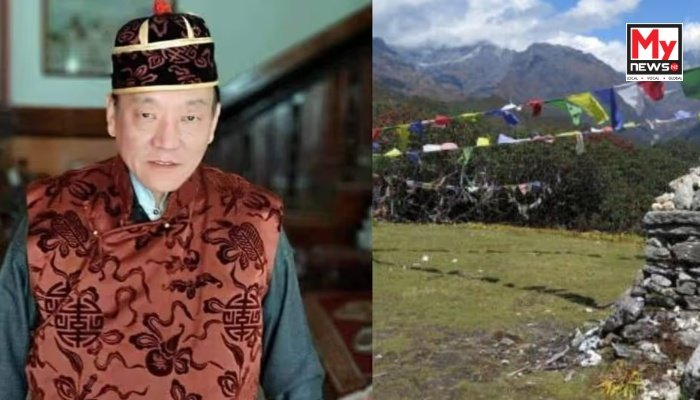Sikkim Voices Strong Protest Over Nepal-Side Khangchendzonga Climb, Citing Hurt Religious Sentiments
Gangtok, Sikkim – A wave of strong reactions is emanating from Sikkim following the news of a recent mountaineering expedition that successfully summited Mount Khangchendzonga from the Nepal side. Indigenous communities in the Himalayan state have expressed deep hurt and outrage, considering the peak a sacred deity whose sanctity has been violated by the ascent.
Tseten Tashi Bhutia, a prominent tribal leader and the Chief Advisor of BJP Sikkim, has issued a forceful condemnation of the climb. In a press statement released earlier today, Bhutia articulated the profound distress felt across Sikkim. “We express our deep anguish and strong objection to the recent climbing of Mount Khangchendzonga from the Nepal side, despite repeated appeals to honour its sacredness,” he stated, emphasizing the mountain’s pivotal role in the Sikkimese identity. “For the people of Sikkim, Khangchendzonga is our Guardian Deity—the divine protector of our land, deeply enshrined in our faith, tradition, and collective identity protected under Article 371F of our Indian Constitution.”
Mount Khangchendzonga, the world’s third-highest peak, transcends its geographical significance for the Bhutia, Lepcha, and other indigenous communities of Sikkim. Revered as a sacred site, its spiritual importance is deeply ingrained in the local culture and traditions, further protected by the Places of Worship (Special Provisions) Act, 1991, according to Bhutia. The state even observes an annual public holiday, Pang Lhabsol, dedicated to honouring the mountain’s spiritual essence.
The silence of the Sikkim Government on this sensitive issue has further fueled the discontent. Bhutia expressed his disappointment, stating, “We are deeply disappointed by the silence of the Sikkim Government on this matter of cultural and spiritual violation. The government must come forward with a clear and convincing explanation for its inaction, and more importantly, demonstrate a commitment to upholding and protecting the sanctity of our sacred sites.” He drew a comparison with the respect shown to other sacred mountains globally, citing the complete climbing ban enforced by China on Mount Kailash in Tibet due to its religious significance. “If such a precedent can be respected elsewhere, why has the Sikkim Government failed to prevent this expedition to our most sacred mountain?” he questioned.
In his statement, Bhutia outlined a series of urgent demands directed at both the Sikkim and Central Governments. These demands include the immediate filing of an official diplomatic protest with Nepal regarding the expedition, proactive measures to secure international recognition and protection for Mount Khangchendzonga’s sacred status, rigorous enforcement of existing legal protections under Indian law, and a commitment to consult with indigenous and religious leaders to fortify legal and cultural safeguards for sacred landscapes. As the Convenor of the Sikkim Bhutia Lepcha Apex Committee (SIBLAC), Bhutia has consistently championed the rights and cultural heritage of Sikkim’s indigenous population. He concluded his statement with a resolute assertion: “We urge all concerned authorities to act swiftly and decisively in defence of our cultural and spiritual heritage, for the sanctity of the mountain is non-negotiable for the people of Sikkim.”
Read More: 21-Year-Old Youth Drowns in Lodung River During Football Trip in Sikkim’s Gyalshing District

